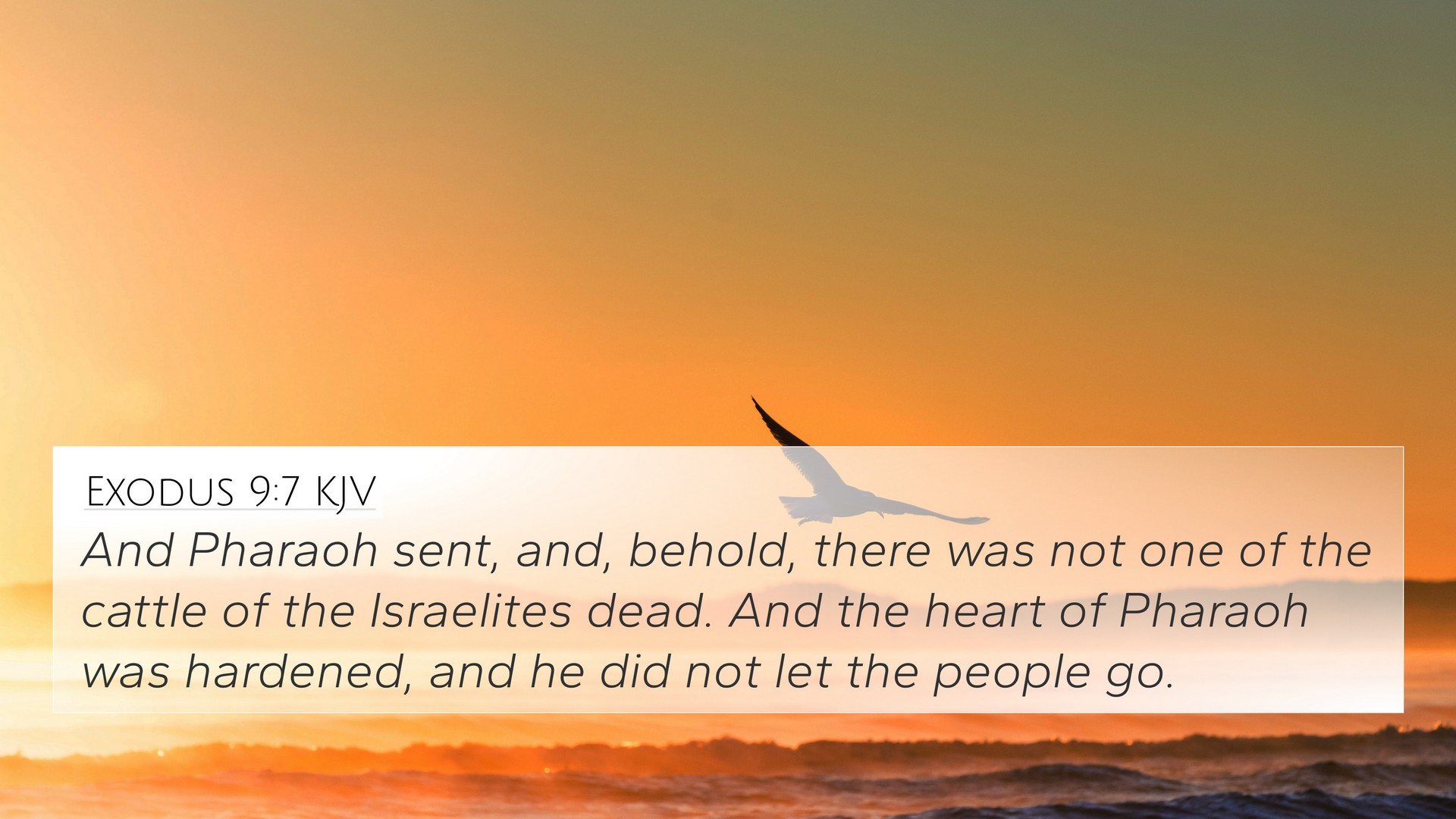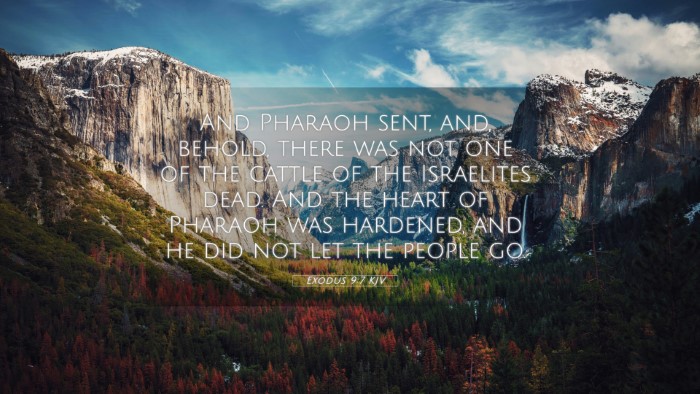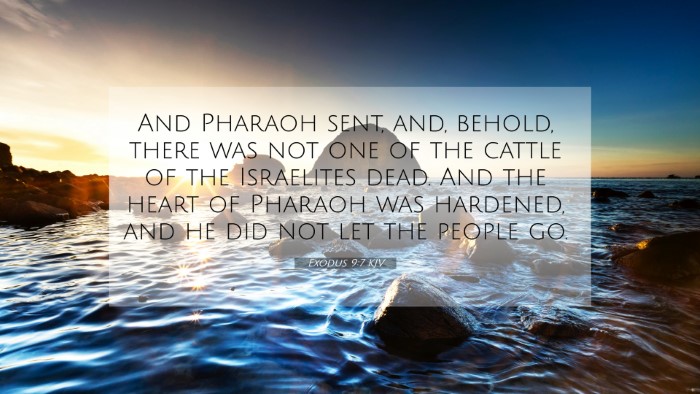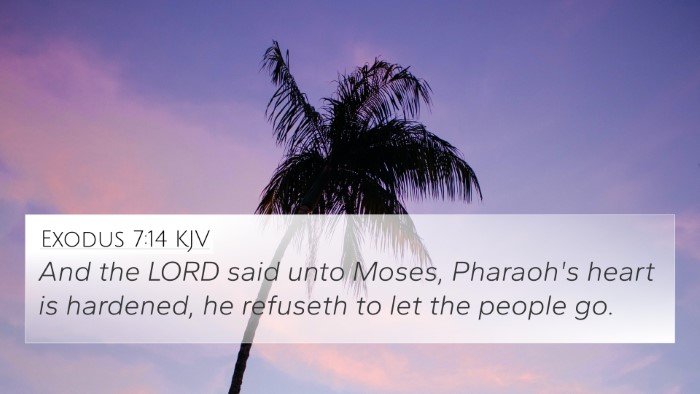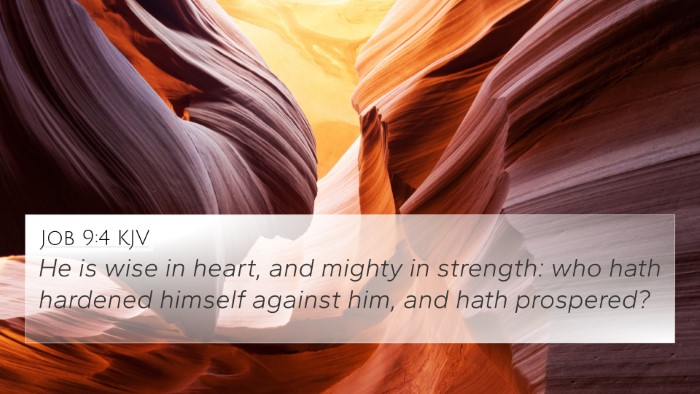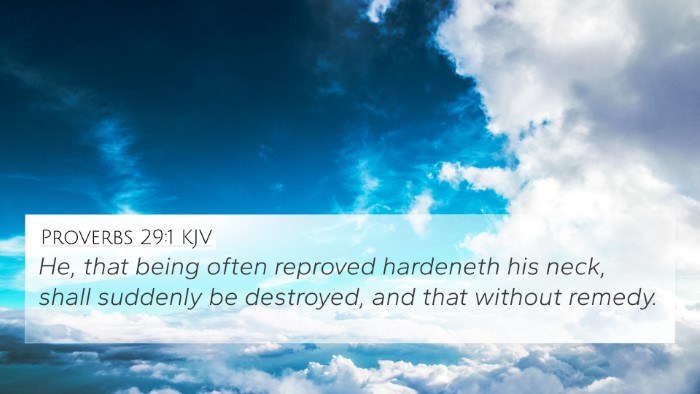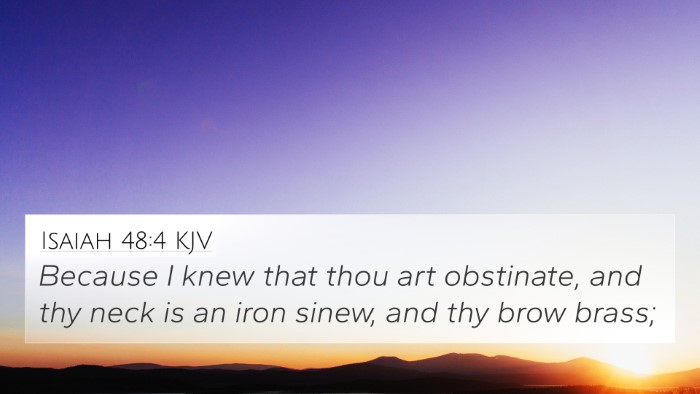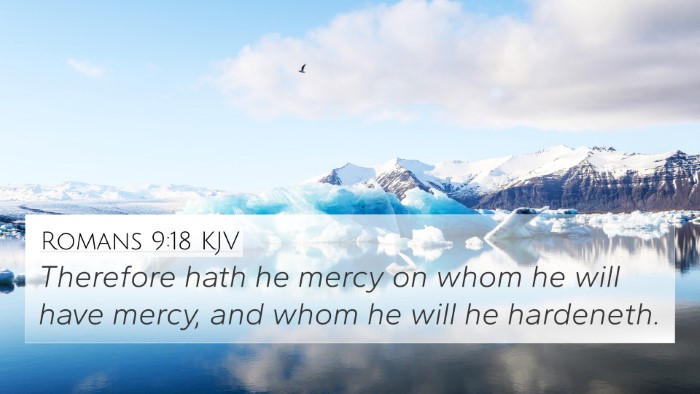Understanding Exodus 9:7
Exodus 9:7 states, "And Pharaoh sent, and, behold, there was not one of the cattle of the Israelites dead. And the heart of Pharaoh was hardened, and he did not let the people go." This verse highlights a critical moment in the narrative of the Exodus, exemplifying Pharaoh's continual resistance to God's command despite the evident signs and wonders performed.
Summary of Insights from Public Domain Commentaries
Matthew Henry's Commentary
Henry emphasizes that this verse portrays God's mercy towards the people of Israel and the firmness of Pharaoh's heart. Despite the miracles and plagues that God inflicted upon Egypt, Pharaoh refuses to concede. This showcases the hardness of human hearts in the face of divine intervention. Henry encourages readers to reflect on the necessity of softening one's heart to God’s will and the consequences of hardening it.
Albert Barnes' Notes
Barnes analyses the significance of Pharaoh's awareness that not a single livestock of the Israelites was harmed. This exemplifies a direct act of divine distinction between the people of God and the Egyptians. Barnes focuses on the idea that Pharaoh's hardened heart represents not only personal obstinacy but a broader theme of rebellion against God's authority, which can lead to dire consequences.
Adam Clarke's Commentary
Clarke provides a deeper exploration into the implications of Pharaoh's hardened heart. He attributes this hardening to a combination of divine influence and personal choice. According to Clarke, the story exemplifies a significant theological concept: God can allow individuals to follow their own paths, which may lead to their destruction. He urges the readers to heed the lessons from Pharaoh’s experiences as a warning.
Cross-References for Exodus 9:7
- Romans 9:17-18: "For the Scripture saith unto Pharaoh, Even for this same purpose have I raised thee up..." This verse directly ties God's purpose and the hardening of Pharaoh's heart to His sovereign plans.
- Exodus 7:3: "And I will harden Pharaoh's heart, and multiply my signs and my wonders in the land of Egypt." This verse foreshadows the hardening events and sets the stage for understanding Pharaoh's actions.
- Exodus 8:15: "But when Pharaoh saw that there was respite, he hardened his heart…" This reflects the consistent pattern of Pharaoh’s heart being hardened following moments of relief.
- Psalm 105:25: "He turned their heart to hate his people, to deal subtly with his servants." This passage illustrates the broader context of hostility towards God's chosen people.
- Isaiah 63:17: "O LORD, why hast thou made us to err from thy ways, and hardened our heart from thy fear?" This verse speaks to the consequences of a hardened heart.
- Job 9:4: "He is wise in heart, and mighty in strength: who hath hardened himself against him, and hath prospered?" An exploration of the futility of opposing God's will.
- Revelation 9:20-21: "And the rest of the men which were not killed by these plagues yet repented not…" A stark reminder of humanity’s tendency to persist in sin despite divine judgment.
Thematic Connections
Exodus 9:7 opens pathways to understand various theological themes including rebellion, grace, judgment, and mercy. The thematic richness can be explored through:
- Obstinacy in the Face of Evidence: The notion that people can observe divine truths and still resist is prevalent throughout Scriptures.
- Divine Sovereignty versus Free Will: The interplay between God’s actions and human choice, particularly the hardening of hearts.
- God's Protection of His People: Divine distinction between those who serve God and those who oppose Him.
Applications for Cross-Referencing Study
For those seeking to conduct a thorough Bible verse analysis and identify connections between Bible verses, utilizing tools like a Bible concordance and a bible cross-reference guide can prove invaluable. Understanding how to find cross-references in the Bible allows the user to uncover thematic links across different testaments, enhancing the richness of interpretation.
The cross-referencing study methods encourage deeper engagement with Scripture, revealing Bible verses that relate to each other and provide more profound insights into individual verses. It may be beneficial to explore the Bible reference resources that offer comprehensive Bible chain references linking similar themes across narratives and teachings.
Conclusion
Exodus 9:7 serves as a powerful reminder of the consequences of a hardened heart and the urgent need for humility and obedience before God. By examining this verse through cross-referencing and comparative analysis with other Scriptures, believers can gain a deeper understanding of God’s justice and mercy.
